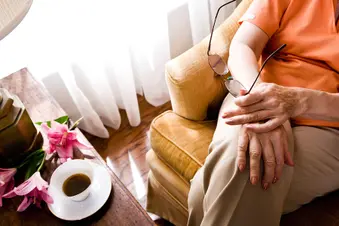How Much Do You Know About Hemorrhoids?


Question 1/10
Hemorrhoids are:
- Harmless growths
- Infected tissue
- Swollen veins
Question 2/10
About how many people will have hemorrhoids at some point in their lives?
- 36%
- 52%
- 75%
Question 3/10
You can get hemorrhoids from spending too much time on the toilet.
- True
- False
Question 4/10
Are hemorrhoids dangerous?
- Yes
- No
Question 5/10
Hemorrhoids are also called:
- Scabies
- Piles
- Anal fistulas
Question 6/10
The two types of hemorrhoids are:
- Inflammatory and non-inflammatory
- Internal and external
- Lateral and medial
Question 7/10
What do doctors recommend for hemorrhoid discomfort?
- Applying a cream with capsaicin
- Soaking in a shallow, warm bath
- Wearing thong-style underwear
Question 8/10
Hemorrhoids can happen as a result of:
- Spicy food
- Moist toilet tissue
- Pregnancy
Question 9/10
What can you do to help prevent hemorrhoids?
- Eat soft, creamy foods
- Hold your bowel movements
- Get more exercise
Question 10/10
What might your doctor use to treat severe hemorrhoids?
- Rubber bands
- Sticky tape
- Paper clips